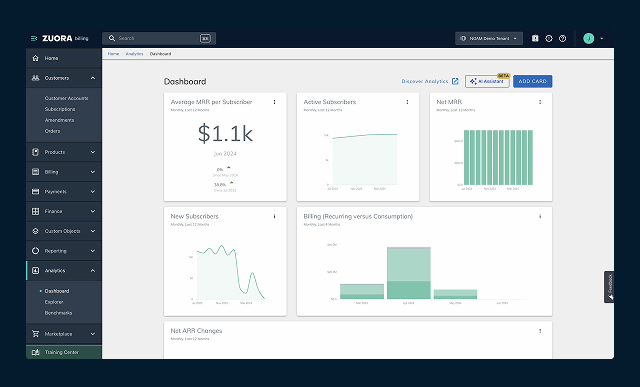Tesla upending a century of automotive tradition. Uber redefining the taxi market. Airbnb reinventing holiday stays. This is digital transformation in action: modern organisations disrupting existing operating models and markets – not in decades, but in years.
The lesson to be learned from this? Private and public sector organisations need to adopt a modern, agile digital strategy to respond quickly to this unprecedented pace of change. This agility enables faster innovation, productivity, and services built around customers’ and citizens needs.
However, that change doesn’t come easily. Most organisations continue to rely on fragmented, legacy technology and manual processes that have been adapted and integrated to different systems over the years. Data resides in self-contained, difficult to reach silos. This hairball of complexity inhibits business change and digital adoption.
People are also a barrier to this new digital era. They are content to work with the same systems they’ve used for five or ten years. It works for them and they’re reluctant to embrace the new. And there’s no connected view of data to create the real-time insights needed for fast, informed decision-making.
Digital transformation also involves far more than just launching a glossy new website. It marks a fundamental rethink of how your organisation uses technology, people, and processes in pursuit of new business models and new revenue streams, driven by changes in customer and citizen expectations.
Connected ERP system creates ‘digital core’
Enterprise resource planning (ERP) systems are the heartbeat of digital transformation delivery. ERP ties together a multitude of business processes from multiple sources, creating a single, connected view of data across the organisation and a single source of truth. With this digital ‘core’, you can cut through complexity, automate and streamline processes, quickly create powerful and intuitive services, and trust the data used for decisions to be complete, accurate, and timely.
Take the example of the finance function. Traditionally, financial management has typically been transaction-intensive: a multitude of manual, overlapping processes that absorb time, money, and resources. Financial reports are frequently obsolete because it takes so long to extract the data from different silos. Change is slow.
ERP financial management unites finance data, harnessing real-time visibility and introducing automation and control over every stage of the record-to-report cycle, anytime, from anywhere. You can streamline budget planning and analysis, accelerate the financial close, and provide leadership team with timely, trusted data for decision-making. And of course, all this takes place in the cloud – the modern, adaptive, and secure platform fast becoming the de facto standard for forward-thinking organisations.
It’s a similar story with your human resources (HR) function. An ERP HR platform brings together all your fragmented people data into one, shared system. That way, you can automate core HR processes like absence and expenses management; synchronise payroll; manage people performance with talent management; and harness analytics for fast, accurate people decisions.
A trusted partner for digital change
Make no mistake: while digital transformation can be infinitely rewarding, it can also be a challenging journey. It involves reinventing business models, changing the way people work, adapting the culture of the organisation – and of course investing in modern (frequently expensive) technology. Risk is everywhere. The cost of failure high. Faced with a such a difficult digital change journey, you need a navigator you can trust.
This is where Embridge Consulting comes in.
Embridge is a highly successful, independent mid-tier consultancy advising on business systems and ERP implementations, including Unit4. Headquartered in the UK, the company has a wealth of knowledge in developing and deploying business information systems and training end-users to maximise their investment in technology.
Every day, Embridge is collaborating with customers in the public sector, nonprofit, professional services, and other sectors to shrink the time to value from digital change and transformation.
Despite its phenomenal growth and track record for delivery, Embridge proudly positions itself as a boutique systems integration (SI) specialist. It offers all the knowledge, reach, and breadth of services of a multinational, heritage SI, but with a pace of agility, intimacy, and cost-effectiveness the heritage players can only dream of.
Embridge’s vision is to develop, implement, and support the most innovative solutions and methodologies in the digital transformation, digital adoption, and consultancy sector – helping customers realise their full potential.
The Embridge Value Accelerator (EVA), for example, is a complete, out-of-the-box ERP implementation strategy and configuration, created with industry-specific best practice and pre-built statutory / legislative compliance. The EVA fast-tracks the ERP implementation process, enabling customers to shrink the time to value by as much as 65 percent.
EVA Finance, for example, features pre-configured finance applications like AP automation, eliminating lengthy design workshops and decision making. This way, customers can implement core finance functionality and integrate successive modules in a fraction of the time of traditional ERP implementations.
People matter to Embridge too. Organisational change, Embridge advocates, often fails because people don’t understand the importance of getting on board the change or how to successfully make the change. They simply understand that a change is happening. And leaders are often not equipped to engage individuals effectively during the change and to manage any potential resistance.
For Embridge, organisational change and digital adoption can only happen when individuals change and a thriving change-ready culture is in place.
Embridge has also adopted a bespoke, best practice change management model. It equips leaders with the right strategies and tools, and individuals with the right information, motivation, and ability to successfully move through changes in the organisation.
By outlining the goals and outcomes of successful change, this proven model enables leaders and change management teams to focus their activities on what will drive individual change and therefore achieve organisational results.
Digital change is a science, requiring a careful balance between people, processes, and technology. Embridge bridges the gap between all three, delivering powerful and cost-effective change that ultimately drives productivity, growth, and customer satisfaction.




